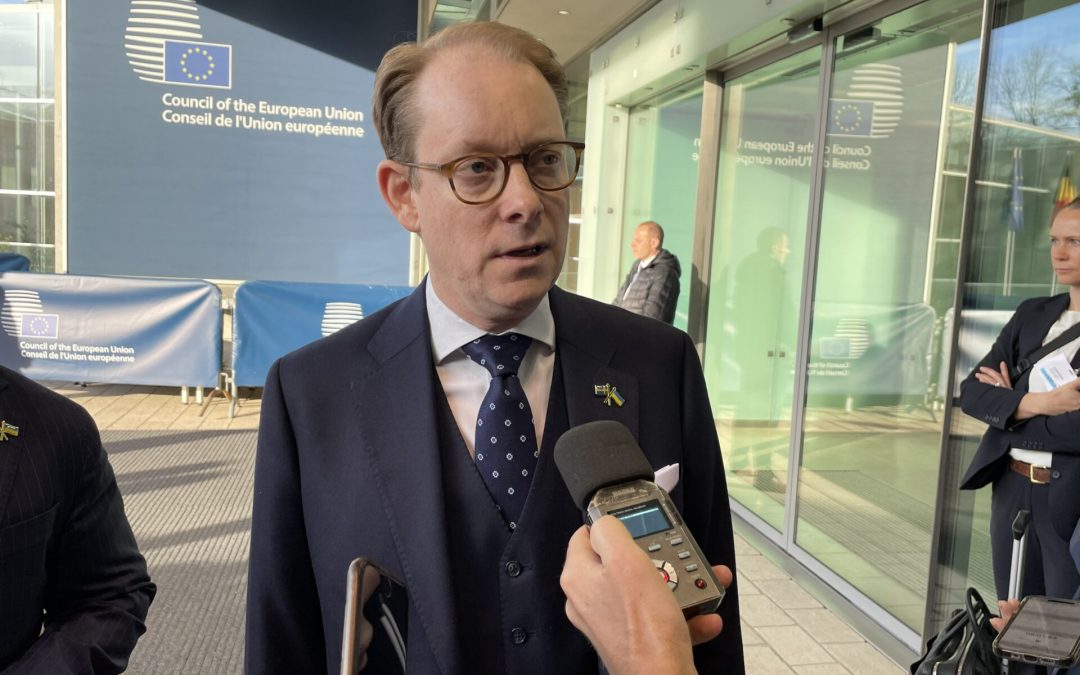The EU’s foreign ministers have now nailed the deal on the next sanctions package that their ambassadors in Brussels agreed upon last week.
This will stop the import of Russian liquefied natural gas (LNG) to ports not connected to the EU’s gas network. At the same time, 116 new power holders, organizations, and companies are placed on the list of those whose potential assets in the EU will be frozen and not given entry permits.
For the first time, action is also being taken against the “shadow fleet” – the often questionably seaworthy ships that Russia has used to circumvent previous sanctions primarily around oil trading. 27 specific ships are listed, with a ban on docking at ports and receiving services in the EU.
The hope is that the sanctions will serve as a warning to the countries where the ships are registered.
“A very important issue is about seeking contact with the states that are the flag states for these ships. These are not necessarily EU states but other countries. And we need to talk with them to try to address this problem,” says Sweden’s Foreign Minister Tobias Billström (M) on site in Luxembourg.
Package number 14 has been hammered out for almost two months before the EU countries reached an agreement.
(June 24)
 go to the original language article
go to the original language article
